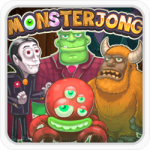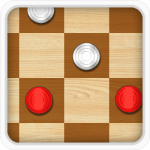Card & board Games
123 card games free for kids | free online card board games
Top 5 Boring “Classic” Board and Card Games
Board and card games are a great way for friends to come together and compete in a variety of fun ways. At least, theoretically. Unfortunately, several of the best-selling packages fail to engage players. Don’t believe me? Let’s check out five surprisingly boring classic board games!
1. Candy Land
This game. This game right here. Can it even be called a game? Can I call a piece of lint food because you can technically eat it? Candy Land has players try to reach the end of the board first. There’s just one teensy little problem:
You have no impact on this game
Candy Land’s outcome is literally decided before the game begins. You draw a card and advance to where it tells you. Whoever’s cards happen to take them to the end first will win. Heck, Chutes and Ladders has no strategy, but at least there the outcome is uncertain at first because you, to an extent, impact the spins.
Candy Land doesn’t even let you semi-control the movement with die or a spinner. It’s not really a game so much as a flashy piece of cardboard designed to catch the eyes of kids attracted to the bright colors. Mercifully, the “game” doesn’t last as long as War or Monopoly, but at least they pretend to have strategy.
In short, Princess Lolly can go jump off a bridge for all we care.
2. Monopoly
That’s right, the best-selling board game of all time is undoubtedly one of the least interesting. Players compete to earn the most money by buying locations and collecting taxes from opponents who land on their property. Same issues as before:
Luck-based
Way, way too long
Handling money further slackens the game
When the box says it’s 8+, it must be referring to the number of years necessary to finish it. There is no strategy here. To win, buy every property you land on and hope you collect them faster than your rivals. Once all lands are bought, play becomes an immensely uninteresting lumber towards victory for the player with the most purchases.
While almost everyone has played this game, very few ever finish because it’s obvious who will win hours before it happens; why extend the drab experience longer than necessary?
Themed versions of Monopoly thankfully add other elements to mix up the gameplay (Pokemon Monopoly is surprisingly fun), but the base edition fails on all counts.
3. War
You know, war is probably named after the effect it has on nations who play it.
Players grab a normal card deck, randomly deal half to each player, then each reveals the top card of their deck. The higher value wins, and that player receives both cards. This process repeats until one player wins the entire deck. A tie results in both players setting a card facedown, then revealing the next top card; whoever wins gets all six cards. Here are the issues:
Again, totally luck-based
Lacks any theme
Games drag on far too long
If players want a luck-based game, they might as well flip a coin for fun. War is a slow crawl towards defeat where the player who was dealt more higher values in the deck (either Aces or Jokers) wins 99% of the time.
The only way to defeat someone with a higher value is to tie, hope they put their highest value card as their facedown, then win the next revealed clash. That’s just not gonna happen much, and even when it does, it’s still entirely luck based. Taking a player’s entire deck will almost certainly require hours; most people give up to go perform more interesting activities, like watching paint dry.
While it’s cool that you can play War with a normal deck of cards, making a boring game cheap doesn’t vanquish its stale experience.
4. Chutes and Ladders
The most famous version of “Snakes and Ladders”, Chutes tasks players with reaching the end of the board first. You’ll move by either spinning a spinner or rolling a die, then moving that value forward. Land on a chute and you plummet further down the board; a ladder lets you advance towards your goal. Here are the problems:
Completely luck-based
First player gets an advantage
Choking Hazard is the most interesting part of the game
Because there are no elements other than moving, which is completely dependent on luck, you never make any choices. You just hope your rolls/spins treat you well, and then brag about how awesome you are when you win, or how stupid the game is when you lose. Yea, that’s right Kyle, you deserve that chute you ungrateful screwup.
Admittedly, Chutes introduces a morality theme where children who are selfish must descend chutes while kind children are rewarded and advance up ladders. While that’s a good lesson for kids, it can’t save the game from intense monotony.
5. Yahtzee
This game may not be board, but you’ll be. Yahtzee has participants (more like victims) roll dice to obtain higher scores than other players. The game utilizes point systems similar to poker, with bonuses like “three of a kind” or a “straight”. Here are the issues:
Incredibly luck-based
More complex than most
Lacks any interesting theme
Just play Poker, it’s basically the same thing
Okay, I understand just about every board and card game involves some degree of luck, but there’s just not enough strategy here to be engaging. The only choices you make are which die to reroll. Play Poker instead, it’s the same game but shorter.
Even worse, for such a simple, luck-dependent premise (score the most points), the game is surprisingly complex in terms of points. Just check out how long the wikihow article on Yathzee is.
Finally, the base version of the game contains no theme, making it lack any sort of aesthetic value. From theme to gameplay, Yahtzee is mundane.








